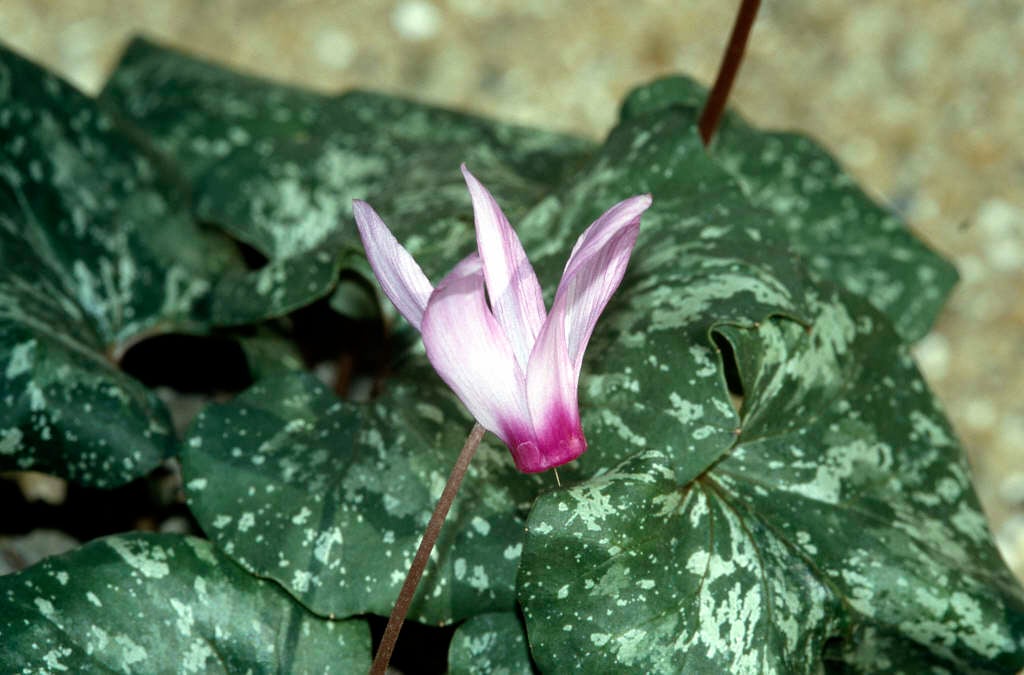Size
Ultimate height
Up to 10cmTime to ultimate height
1–2 yearsUltimate spread
0–0.1 metreGrowing conditions
Moisture
Well–drainedpH
Acid, Alkaline, NeutralColour & scent
| Stem | Flower | Foliage | Fruit | |
| Spring | Pink | |||
|---|---|---|---|---|
| Summer | ||||
| Autumn | ||||
| Winter |
Position
- Partial shade
Aspect
West–facing or South–facing or North–facing or East–facing
Exposure
Sheltered Hardiness
H4Botanical details
- Family
- Primulaceae
- Native to GB / Ireland
- No
- Foliage
- Deciduous
- Habit
- Bushy
- Potentially harmful
- Ornamental bulbs, not to be eaten. Wear gloves and other protective equipment when handling Pets: Ornamental bulbs, not to be eaten - see the HTA guide to potentially harmful plants for further information and useful contact numbers
- Genus
Cyclamen are tuberous perennials with rounded, sometimes angular, leaves which are often attractively mottled. The nodding, characteristically shaped flowers have 5 reflexed and twisted petals, often with dark markings at the base
- Name status
Correct
- Plant range
- Greece Peloponnese
How to grow
Cultivation
Grow in moderately fertile, humus-rich, well-drained soil in part shade, under trees or shrubs, to avoid excessive summer moisture. Mulch annually with leaf mould as leaves wither; in areas with prolonged frost provide a deep, loose mulch. See hardy cyclamen cultivation
Propagation
Propagate by seed, sown in darkness as soon as ripe. Can be beneficial to soak seed for 10 hours prior to sowing
Suggested planting locations and garden types
- Rock garden
- City and courtyard gardens
- Cottage and informal garden
- Gravel garden
- Patio and container plants
- Underplanting of roses and shrubs
Pruning
No pruning required
Pests
May be susceptible to mice, squirrels, red spider mite, vine weevil and cyclamen mite
Diseases
Generally disease-free but may be susceptible to cyclamen grey mould (Botrytis) under glass
Get involved
The RHS is the UK’s gardening charity, helping people and plants to grow - nurturing a healthier, happier world, one person and one plant at a time.
